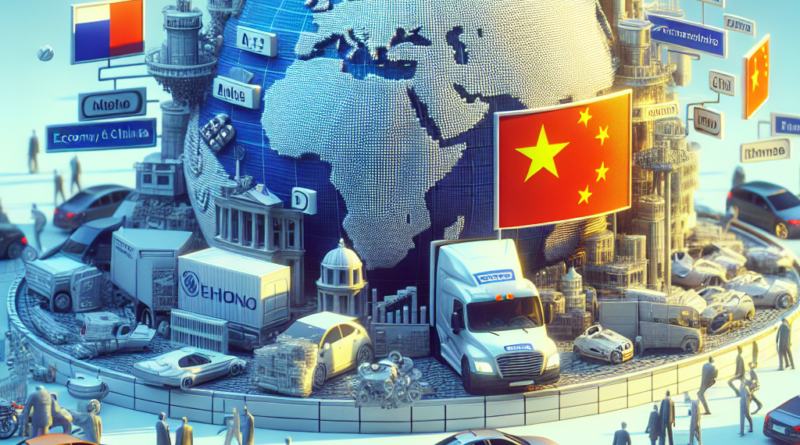Stellantis’s Strategy to Tackle European Tariffs on Chinese Cars
Stellantis Strategically Shifts Electric Vehicle Production to Europe
In response to the recent tariff announcements from Brussels, Stellantis has decided to move part of the production of Chinese-branded electric vehicles to Europe.
This move reflects an evolving regional strategy among global automotive manufacturers, signaling a significant shift in the industry.
European Production Expansion
The group, which owns the Citroën and Fiat brands, had already announced in May its plans to introduce electric vehicles from the Chinese manufacturer Leapmotor to the European market starting in September.
Stellantis CEO, Carlos Tavares, confirmed on Thursday that some of these vehicles will be manufactured in the group’s European plants.
Tavares stated during Stellantis’ annual assembly in Detroit that “Several [Leapmotor] products will have to be assembled in Europe,” attributing this decision to the tariffs planned by Brussels as a measure to “address a lack of competitiveness” compared to Chinese competitors.
Wider Industry Implications
These tariffs, exceeding the levels previously accepted by Stellantis for cost-effective external production, are part of a broader initiative.
Prior to the European Commission’s announcement of additional tariffs of up to 38% on electric vehicles manufactured in China, automotive groups such as BYD and Chery had already planned to expand their production in Europe.
BYD is set to commence production in Hungary next year and is exploring locations for a second European factory.
Similarly, Chery aims to produce 150,000 vehicles annually from a new plant in Barcelona by 2029.
Chinese Manufacturers’ Expansion in Europe
Chinese manufacturers will accelerate the construction of production capacities in Europe over the next three years.
While short-term tariffs favor European manufacturers, in the long run, they may lead to increased investments and capacities in Europe by Chinese companies, intensifying price pressure similarly to what has been observed in China.
Division in the European Automotive Industry
The proposed tariffs also highlight a division within the European automotive industry.
German manufacturers, heavily reliant on the Chinese market, have expressed concerns about the tariffs, advocating for free trade and warning about possible reactions from China.
Conversely, French and Italian groups, with less presence in China, rely more on the European market.
Tavares emphasized Germany’s exposure to Chinese business and its opposition to tariffs.
Meanwhile, prominent figures such as Ola Källenius of Mercedes and Oliver Zipse of BMW have criticized the protectionist approach of the European Commission, cautioning against the risks of protectionism.
Strategic Response to Market Challenges
Stellantis’ move not only addresses immediate needs related to competitiveness but also aims to anticipate long-term solutions to tackle the threat of cheaper Chinese models.
Just as the European airline industry had to reinvent itself in the face of low-cost carriers, European automakers are called to innovate to maintain their competitiveness in the global market.



